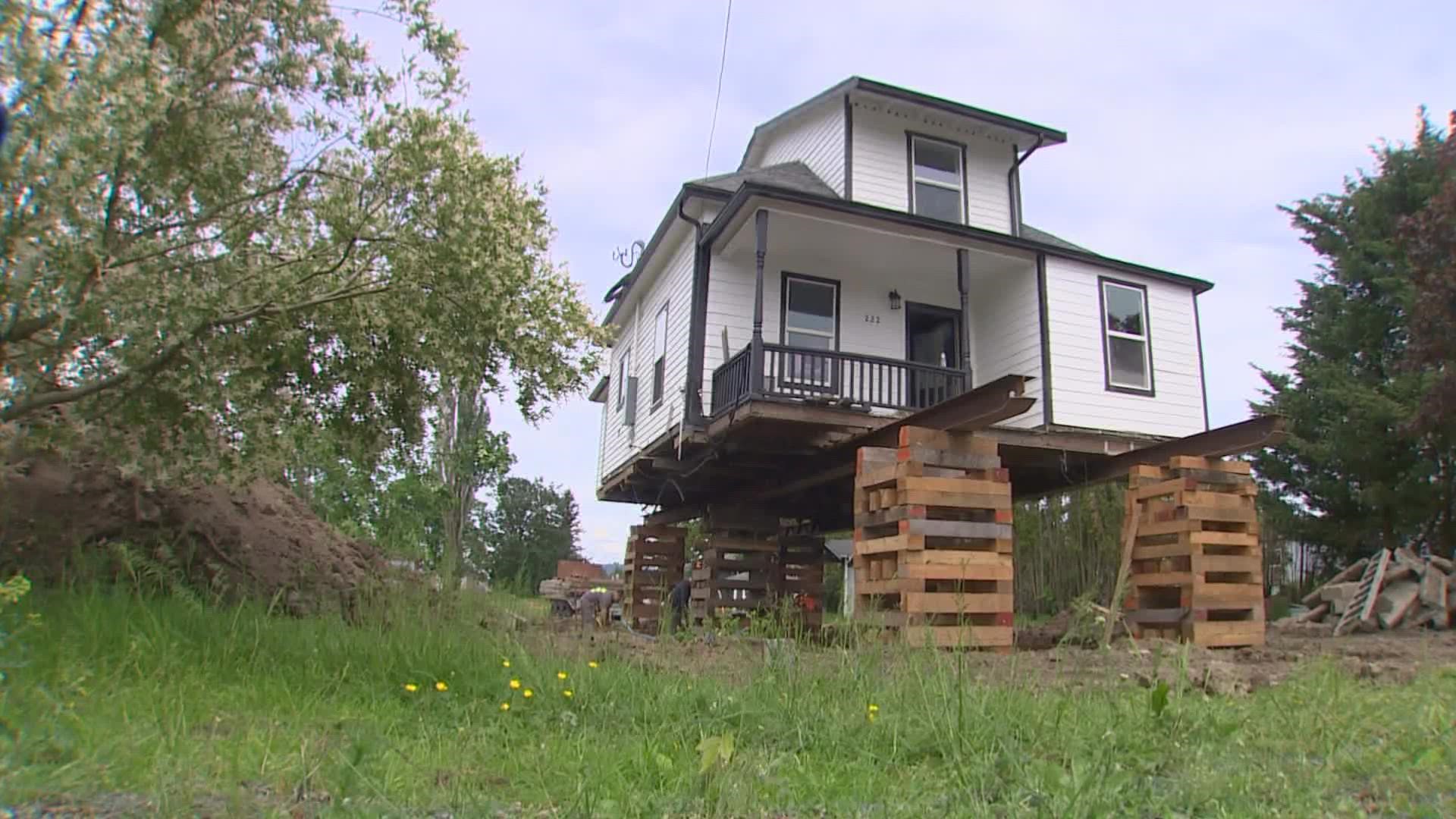SUMAS, Wash — More than six months after historic flooding in Whatcom County, the damage is now taking a deeper toll.
Hundreds of people are still out of their homes and now mental health struggles are surging in the community.
Houses sit propped up on makeshift wooden foundations along city streets in Sumas. People are raising their homes in an attempt to avoid more damage from future flooding. The projects are just some of many changes being felt nearly seven months after the waters have receded.
"There's still a lot that needs to be done out there," said Kyle Christensen, who is leading Whatcom County's flood recovery effort.
A total of 2,000 homes were damaged in sprawling floods that soaked northern Whatcom County last November.
Right now eight case workers are helping more than 500 people navigate the storm's aftermath. More than 30 of those people are still staying in motels.
Damage is estimated at $150 million, but the costs to mental health are causing even more concern.
"One of our disaster case managers was on the phone talking to somebody for almost two hours," said Christensen. "Just very lonely, very sad, very depressed. They just need somebody to listen to them."
Christensen knows the community well. He's the former mayor of Sumas who took a year-long position to manage how the county deals with the aftermath of November's floods and prepares for those to come.
He says housing, workforce and supply shortages are slowing efforts to get people back in their homes.
About 55 people have taken the federal government up on offers to buy their flood-prone homes or raise their foundations. That money can take up to five years to receive, however.
Some people have even moved back into homes contaminated with mold because they have nowhere else to go.
"I think a lot of people are making decisions based on their financial ability and by available housing," said Christensen. "There's just very little affordable housing out there. It's not a healthy set of circumstances."
It's all making for a very stressful situation as people sit stymied -- wondering what comes next -- with hope running out.
"Because of the state that families are in, it's been over 6 months and they're feeling the pressure and the anxiety of not being back in their homes," said Christensen. "It's not a good living situation. They're away from where they feel safe and comfortable. They're desperate."
Next week officials are meeting to address mental health, mold and other flood-related issues, as well as make plans for how to handle the next flood season which is only four or five months away.

